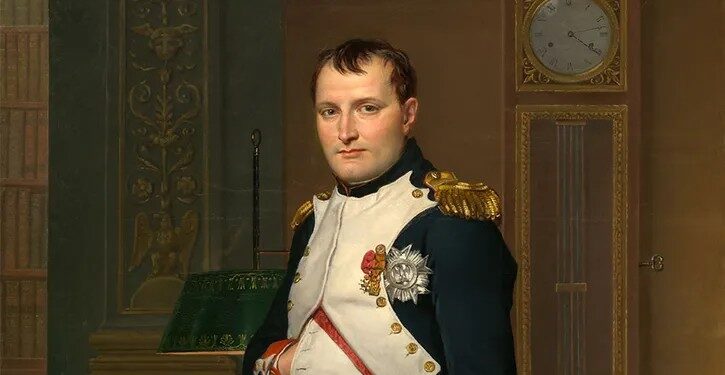Napoleon Bonaparte’s invasion of Russia in 1812, often termed the “Russian Campaign,” marked a pivotal moment in European history, illustrating both the zenith and the commencement of the decline of his imperial power. This monumental military endeavour was driven by Napoleon’s desire to compel Tsar Alexander I of Russia to rejoin the Continental System, a blockade intended to cripple Britain’s economy by restricting European trade.
The campaign commenced in June 1812, with Napoleon amassing the Grande Armée, a force of over 600,000 soldiers from various nations under his control. This formidable army, the largest Europe had ever seen, crossed the Niemen River into Russian territory, expecting a swift and decisive victory. However, Napoleon underestimated the vastness of Russia, the severity of its climate, and the strategic acumen of the Russian military leadership.
From the outset, the Russians employed a scorched-earth policy, retreating deeper into their territory while destroying crops, villages, and supplies. This tactic deprived the French of essential resources and extended their supply lines, leading to logistical nightmares. The campaign’s first significant engagement was the Battle of Smolensk in August 1812, where the French captured the city but failed to deliver a crippling blow to the Russian army.
The most infamous confrontation occurred at the Battle of Borodino on September 7, 1812. It was one of the bloodiest single-day battles in history, with heavy casualties on both sides. Despite tactical French victories, the Russians retreated in an orderly fashion, preserving their fighting force. Napoleon’s forces were left weakened and demoralized.
Napoleon’s entry into Moscow on September 14 seemed like a triumph, but the victory was hollow. The Russians had evacuated the city, and soon, fires—likely set by Russian patriots—engulfed Moscow, depriving the French of shelter and supplies. Napoleon waited for a peace overture that never came. With winter approaching and no decisive Russian surrender, Napoleon decided to retreat in October.
The retreat from Moscow was catastrophic. Harsh winter conditions, guerrilla attacks, and starvation decimated the Grande Armée. By the time the remnants of Napoleon’s forces staggered back across the Niemen River in December 1812, fewer than 100,000 soldiers remained. The campaign’s failure shattered Napoleon’s invincible image, leading to a coalition of European powers rallying against him.
The Russian Campaign of 1812 was a disastrous miscalculation for Napoleon. It highlighted the limitations of his military strategy and marked the beginning of his downfall, culminating in his abdication in 1814. The invasion’s legacy is a poignant reminder of the perils of overreach and the formidable challenge posed by Russia’s vast and resilient landscape.
newshub



Recent Comments